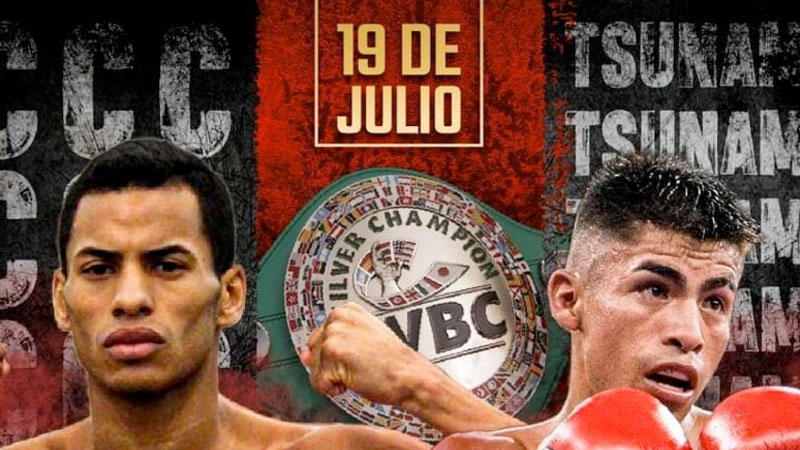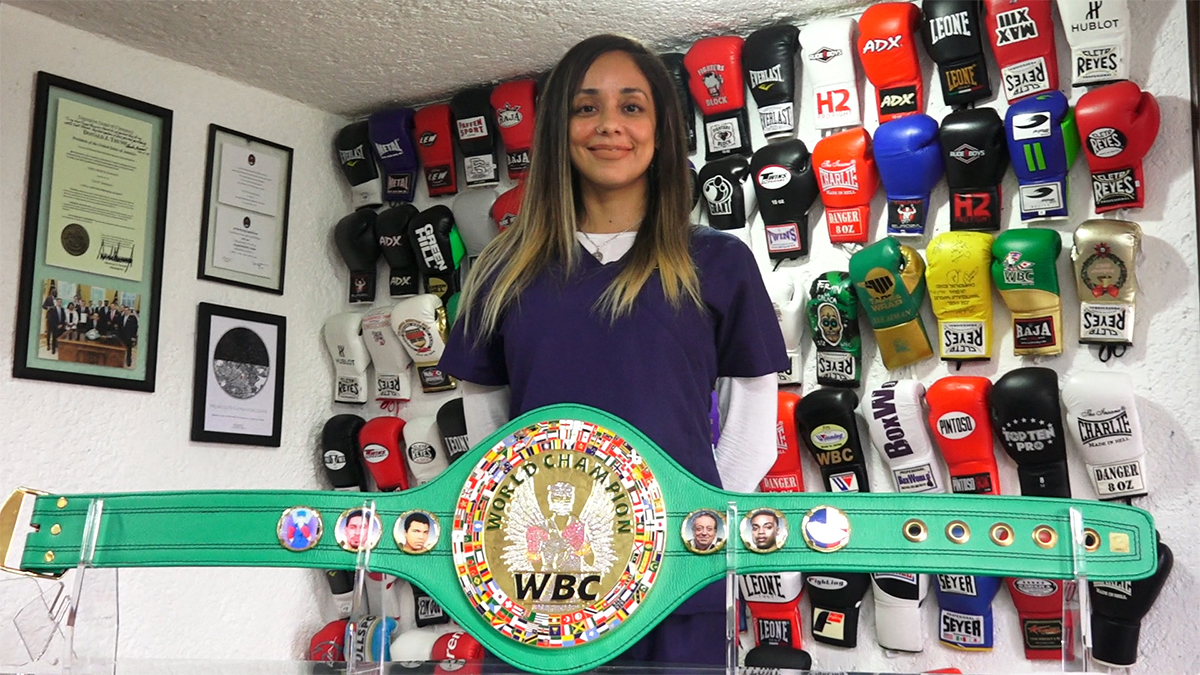
WBC Profiles: Diana Sosa – Social Reintegration & Boxing
Psychologist Diana Sosa has stood out in the boxing world in recent years, for her constant support, commitment, and solidarity, but above all for her work with vulnerable populations and with people deprived of their liberty.
Known for her love for boxing, constant disposition and hard work, Diana works with WBC University, led by Xochitl Lagarda, whose mission is to strengthen, promote and provide much-needed knowledge to the family of boxing.
Diana, a specialist in sports psychology, criminology and prison psychology, has chosen to make this world a better place, also using boxing’s potential as a fundamental tool to transform lives based on the values of dedication, work and effort that emanate from this sport.
Diana visited us a few days ago at the WBC office and it was there that we were able to learn about her passion for boxing, but above all, about the love she feels for her profession, as despite the challenges involved at this difficult level, she always responds with a smile, reinforced by dedication.
How did your professional interests develop?
Since I was a child I had very clear idea of what I wanted to dedicate myself to, I always knew that my path was directed towards criminal psychology.
My mother was an educator and worked for many years in a kindergarten that was very close to the San Fernando Correctional Facility. Since I was a child I used to think, “I’m going to work there someday” and that was my first job.
I always had it very clear and I always knew what my goal was and to date I am very lucky because I keep doing it. Inside the prisons I realized that the behavior of persons deprived of their liberty can be greatly modified through sports activities.
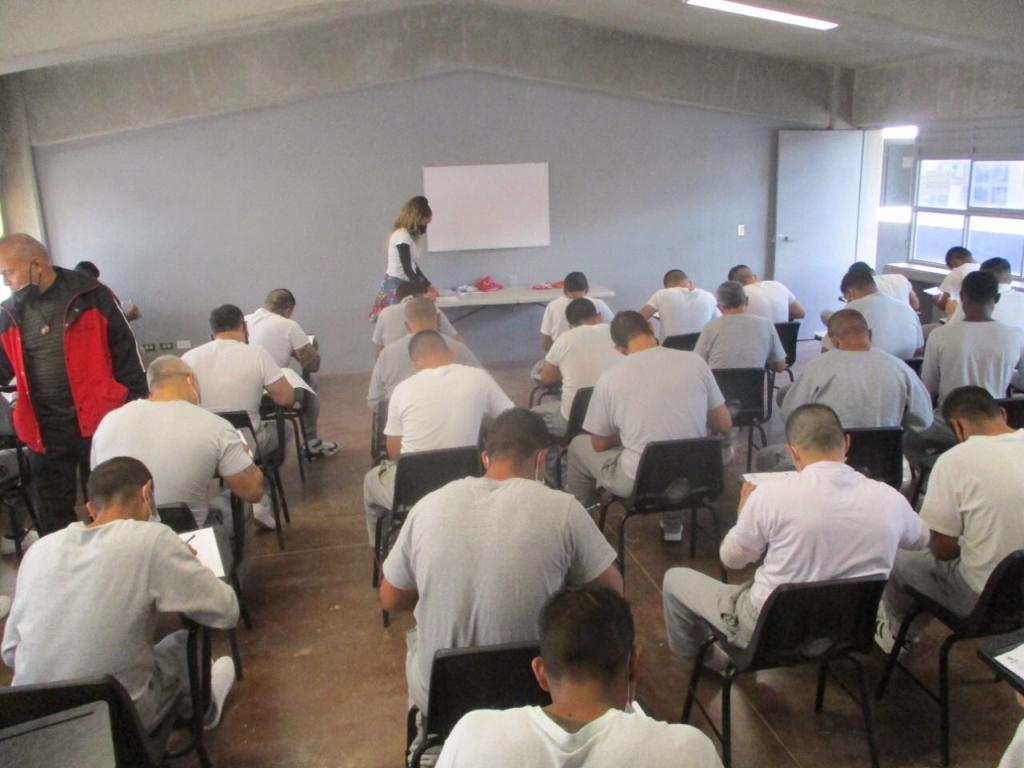
How did you get into the world of boxing?
I liked boxing since I was young , even though I didn’t practice it. One day I signed up for the Nuevo Jordan Gym. When I got to train there, I realized that there were many familiar faces that I had seen on TV. My training partners were Ana María Torres, Cristian Mijares and Judith Rodríguez. I was amazed.
In addition to being training partners, I realized that they were very kind, humble and supportive people. Extraordinary human beings and athletes. I fell in love with it immediately, the world of boxing is very noble.
Later I became friends with many managers, trainers and they knew I was a psychologist, from there they began to send me boxing patients.
I also now collaborate with Xochitl Lagarda at WBC University. It is a very interesting project. I feel very proud to be part of this institution that promotes the physical and mental health of the boxer.

How was your first contact with prison population?
It was more or less around 2007, I started to work precisely at the San Fernando Correctional Facility, now they are called Specialized Centers for Adolescents. My first experience was stark, because at that time it was a federal center so there were approximately 800 adolescents there.
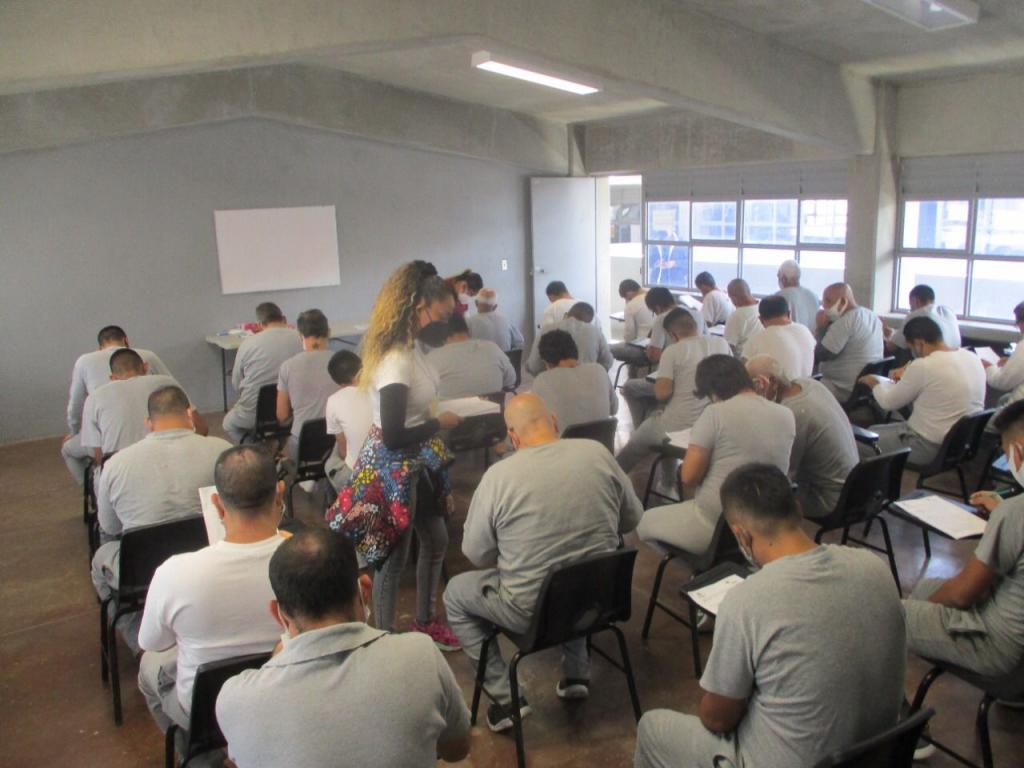
What motivates you and what made you decide to work with this population that most of society relegates?
Well, there is a phrase that I always carry. It is from Terence and it says “I am human, and I think nothing human is alien to me.“
I always understood that many people flee from working in prison and/or are afraid of it. There is a lot of stigma, but being inside, already being there, the panorama has clarified a little bit, in the sense of we are all human beings, and we all deserve second chances. There are talented people with many values, but in the end they are not given the opportunity to be heard.
These people have many things to say and also to contribute to society, because they are still part of us.
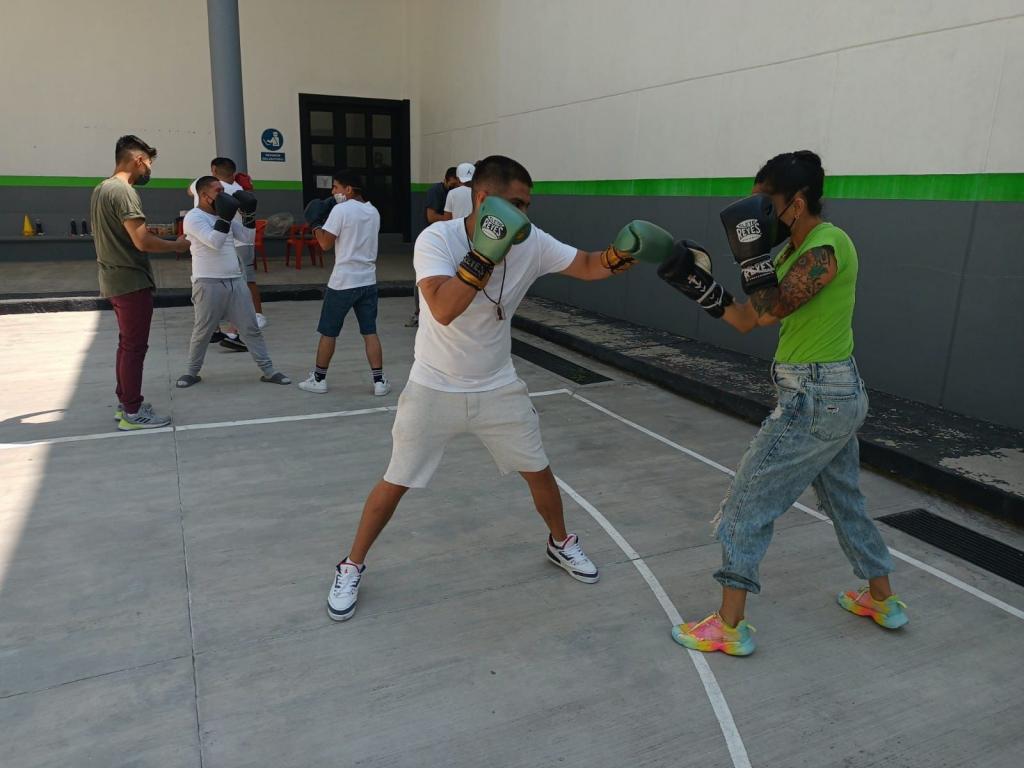
At what point did you realize that boxing was an important tool for social reintegration?
I have worked and have known many prisons in Mexico City and the State of Mexico and for some reason they love boxing. I believe that boxing is the favorite sport of prison inmates and precisely It’s because contrary to what you might think of boxing, it’s not a violent sport.
It is a sport that gives many lessons, that teaches perseverance, patience, humility, respect for the rival. So I think it’s a reinsertion sport par excellence, as boxing keeps people far from addictions.
It is one of the sports that I love and that is one of the most complete. This sport forms a person in an integral way and helps to reintegrate people into society.
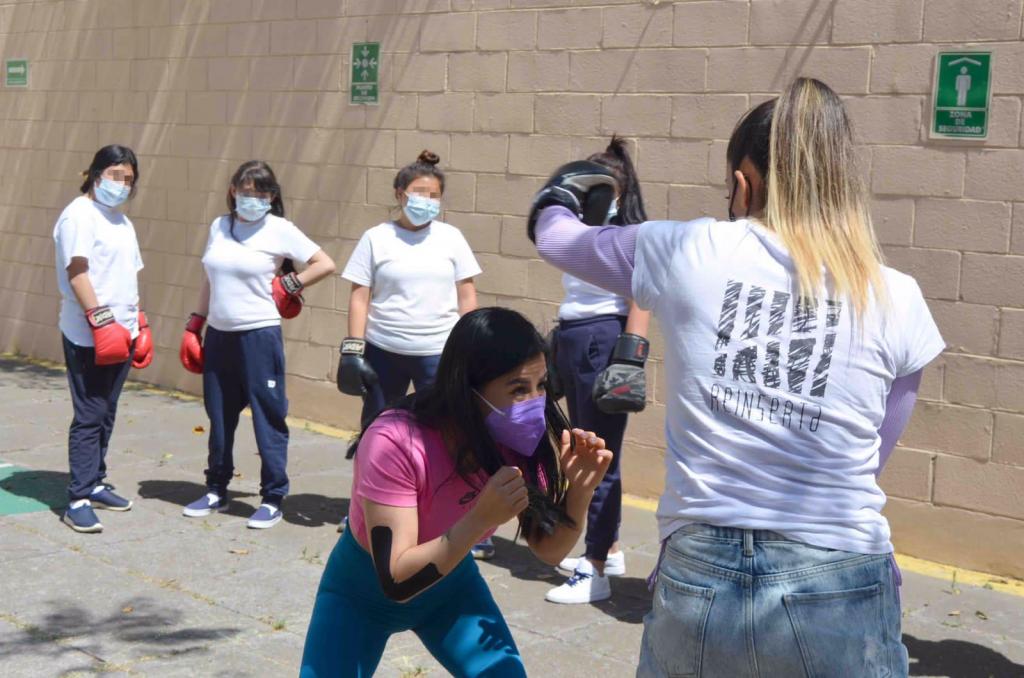
You currently work at “Reinserta”, a non-governmental organization that works with children and adolescents who have been exposed to traumatic situations related to violence in Mexico. Can you tell us a little about your work in that institution?
Through a multidisciplinary team, we develop some programs in several centers, both for female adolescents and for the male population too. We try to provide tools so boys and girls can develop them outside and that can serve them for their reintegration.
One of these axes is sports, which they adopted with great joy. In the Quiróz Cuarón center, a specialized center for adolescents, they love boxing.
They are boys and girls who have long sentences, but finally they are doing this activity with great pleasure. The prison population, contrary to what many people think, is a very grateful population whenever an activity is brought to them, they thank it very much and from the heart.
Being outside, suddenly we do not consider many things and we stop being grateful for how wonderful it is to live. I have experienced many cases where I have patient people deprived of liberty, with whom I made a connection inside and I meet them outside and they greet me with great affection and talk to me what they are doing, what they have achieved.
Reinsertion does exist, perhaps in very few cases, but it does exist.
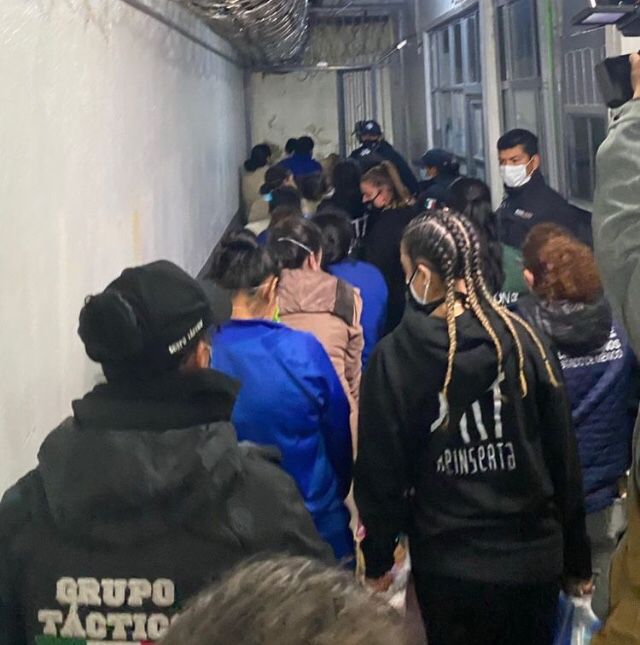
Can you tell us a story that has particularly impressed you?
It was in the Tepepan prison, where I met a woman who was accused, and it was one of those cases of people who should not have been imprisoned and, well, there was a lot of work done on empowerment.
She had never set foot in a prison, she was an indigenous person who could barely speak Spanish. We had many sessions helping her empower herself, because she was even afraid to leave her room. Unfortunately, she was inside for a long time, but as the days went by, she grew stronger. She learned to handle such a difficult situation that is losing her freedom, but with a different kind of attitude.
In the end, she had two paths: to be in jail and suffer, or to be in jail and be a strong woman, empowered, accepting her reality and living it bravely; and that was just what she did.
That case impressed me a lot. Fortunately, she is now free, and this case helped me understand that women and human beings can face anything. We are resilient, and a problem does not kill us. On the contrary, it makes us stronger.
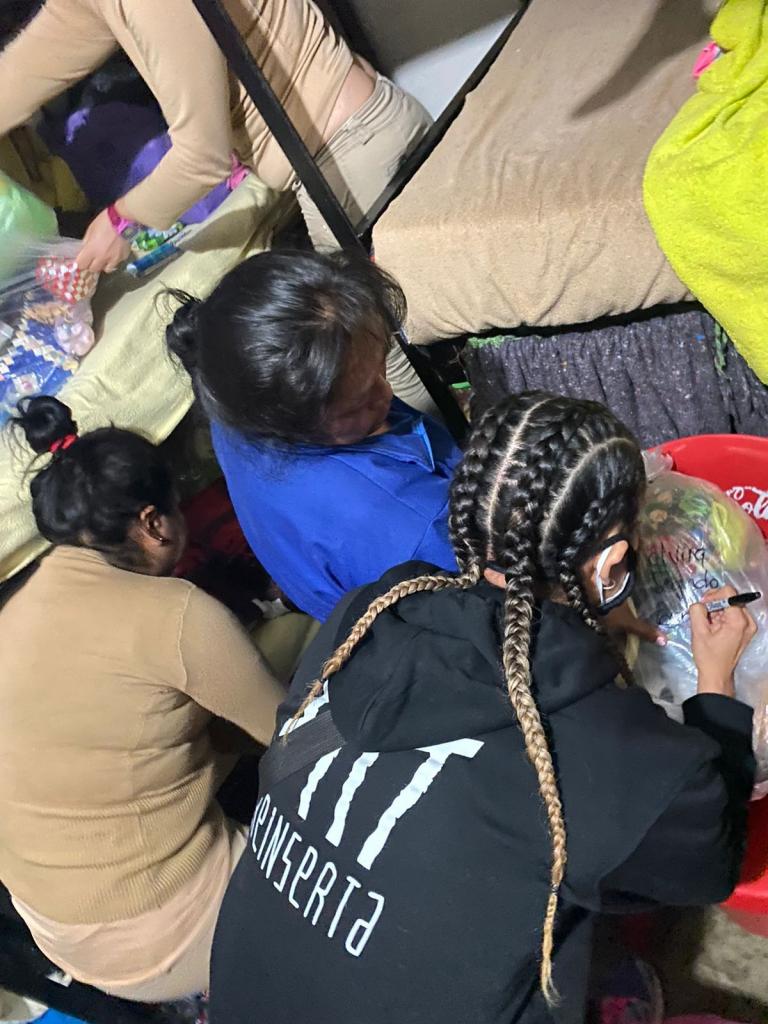
Can you give us a final message?
We are all human beings, we can all make mistakes. I think that the most important thing in this life is always to be empathic, not to judge. There will always be things that are going to move us, but in the end, being human is always our biggest mirror.
We cannot say: “I will never get to a prison, I will never be there” because life takes many turns and we can be in a position that suddenly is not favorable for us. I believe that everything we give we always receive back.
Always treat people with respect and the way that we would like them to treat us.
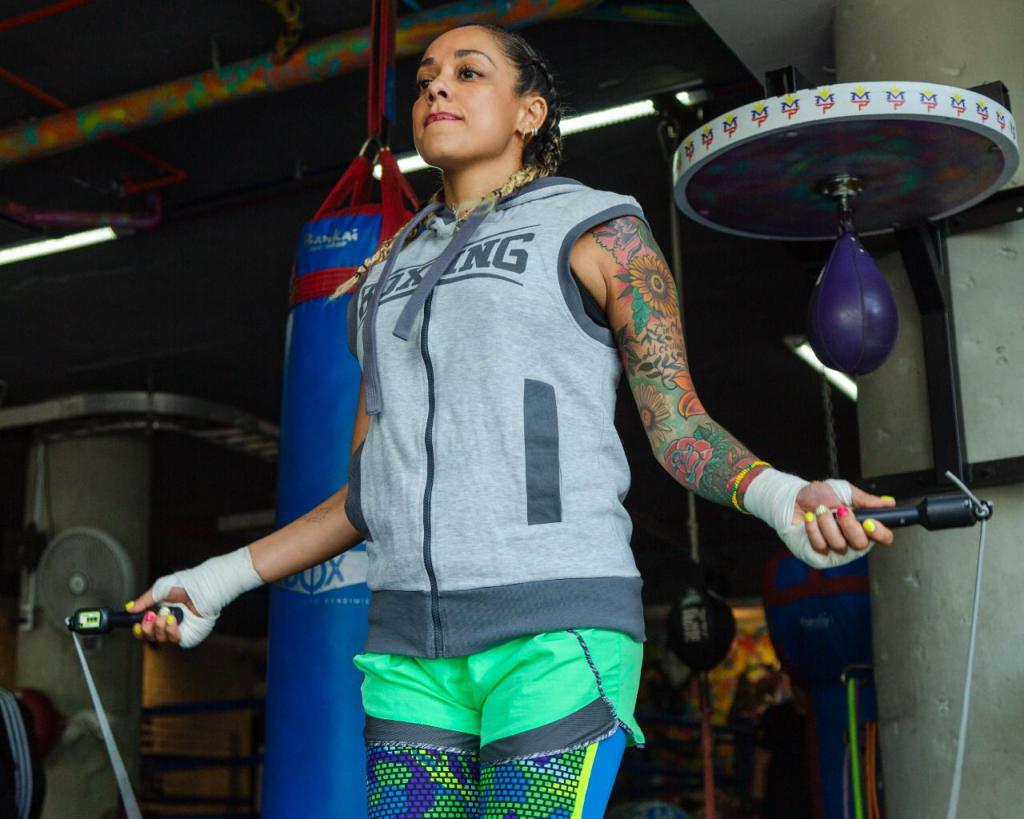
![]()
Related posts
test


